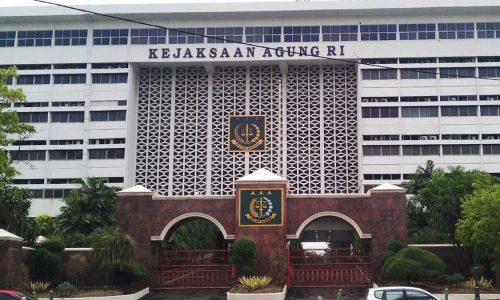Indonesia has made significant progress in reducing deforestation rates, according to recent data released by the Ministry of Environment and Forestry (Kementerian Lingkungan Hidup). The figures suggest a positive trend in combating deforestation, although challenges persist in certain sectors that contribute to forest loss.
Despite the positive trend, the issue has gained international attention due to its association with commodity supply chains, prompting countries such as the European Union to introduce anti-deforestation regulations for imported goods.
Deforestation decreased
Minister of Environment and Forestry Siti Nurbaya Bakar, revealed that Indonesia’s deforestation rates have been steadily declining between 2015 and 2022.
In 2015, the country experienced deforestation covering 1.1 million hectares (ha). However, this number progressively decreased to 462,500 hectares in 2019 and further dropped to 110,000 ha in 2021. While the specific factors driving the reduction of deforestation in 2022 were not detailed by Minister Siti, the estimated figure of approximately 107,000 ha indicates an improving situation.
“We are finalizing the 2022 figure, but it is approximately 107,000 hectares. So, the picture of our deforestation is getting better,” she said, on June 12, 2023.
Nevertheless, Minister Siti acknowledged that deforestation remains a serious concern internationally, as it is closely linked to commodity supply chains involving rubber, cocoa, palm oil, and livestock farming.
Responses from institutions
The global community have been increasingly focused on addressing deforestation as a critical issue. For instance, the European Union recently implemented regulations requiring exporting companies to provide documentation proving that their commodities have not originated from deforested areas since 2020.
Meanwhile, civil society organizations have raised concerns about the potential impact of biomass development and coal co-firing schemes on deforestation. Amalya Reza, a researcher from Trend Asia, highlighted the risks associated with biomass development, stating that it could lead to the clearing of forested land. Environmental regulations such as Ministerial Regulation No. 7 of 2021 from the Ministry of Environment and Forestry had even designate forest areas with conversion functions (known as HPK) for energy purposes.
“HPK still comprises 5 million hectares of natural forests. There is a significant possibility of driving deforestation within HPK due to these energy projects,” warned Reza.
Amalya cited an example of a partnership between PT Perusahaan Listrik Negara (PLN), Perusahaan Umum Kehutanan Negara (Perhutani), and PT Perkebunan Nasional (PTPN). Under this agreement, Perhutani will allocate 70,000 hectares of land for energy plantations, while PTPN will supply waste from palm oil, sugarcane, and rubber that will be revitalized as raw materials.
As Indonesia’s deforestation rates continue to decline, it is evident that efforts to address the issue have yielded positive outcomes. However, it is crucial for the government and relevant stakeholders to closely monitor the impact of industries and initiatives on forested areas. Striking a balance between economic development and environmental preservation remains a key challenge for Indonesia in its ongoing fight against deforestation.









